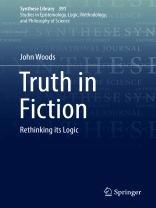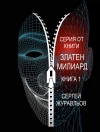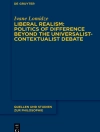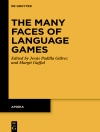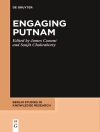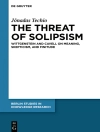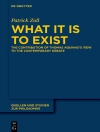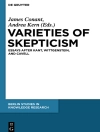This monograph examines truth in fiction by applying the techniques of a naturalized logic of human cognitive practices. The author structures his project around two focal questions. What would it take to write a book about truth in literary discourse with reasonable promise of getting it right? What would it take to write a book about truth in fiction as true to the facts of lived literary experience as objectivity allows?
It is argued that the most semantically distinctive feature of the sentences of fiction is that they areunambiguously true and false together. It is true that Sherlock Holmes lived at 221B Baker Street and also concurrently false that he did. A second distinctive feature of fiction is that the reader at large knows of this inconsistency and isn’t in the least cognitively molested by it. Why, it is asked, would this be so? What would explain it?
Two answers are developed. According to the no-contradiction thesis, the semantically tangled sentences of fiction are indeed logically inconsistent but not logically contradictory. According to the no-bother thesis, if the inconsistencies of fiction were contradictory, a properly contrived logic for the rational management of inconsistency would explain why readers at large are not thrown off cognitive stride by their embrace of those contradictions. As developed here, the account of fiction suggests the presence of an underlying three - or four-valued dialethic logic. The author shows this to be a mistaken impression. There are only two truth-values in his logic of fiction.
Truth in Fiction jettisons some of the standard assumptions and analytical tools of contemporary philosophy, chiefly because the neurotypical linguistic and cognitive behaviour of humanity at large is at variance with them. Using the resources of a causal response epistemology in tandem with the naturalized logic, the theory produced here is data-driven, empirically sensitive, and open to a circumspect collaboration with the empirical sciences of language and cognition.
Cuprins
1. Misconception and Pretence.- 2. A Research Programme for Fiction.- 3. What Readers Know.- 4. Truth-Making.- 5. Sherlock.- 6. Models and Formal Representations.- 7. “Sherlock”.- 8. Salty Tears and Racing Hearts.- 9. Other Things Sherlock Isn’t.- 10. Putting Inconsistency to Rest.
Despre autor
The UBC Honorary Professor of Logic and Director of The Abductive Systems Group. Fellow of the Royal Society of Canada. Author of
The Logic of Fiction (1974),
Fallacies: Selected Papers 1972-1982 (with Douglas Walton in 1989). Author of
Paradox and Paraconsistency (2003) and, with Dov Gabbay, of
Agenda Relevance (2003) and
The Reach of Abduction (2005). Author of the
Death of Argument (2004),
Aristotle’s Earlier Logic (2001),
Errors of Reasoning: Naturalizing the Logic of Inference (2013) and
Is Legal Reasoning Irrational? An Introduction to the Epistemology of Law (2015).
